Mike Meetz and Sam Wormley team up to provide a lively
discussion with OLLI members about Science In The News.
A deep understanding of science is not required to share
and discuss recent Science In The News. Neil deGrasse Tyson
on Scientific Literacy.
LATEST NEWS
https://www.sciencealert.com https://www.sciencealert.com
https://phys.org https://sciurls.com/?q=phys
https://www.nature.com https://sciurls.com/?q=nature
https://www.nytimes.com/science https://sciurls.com/?q=nytimes%20science
https://www.quantamagazine.org https://sciurls.com/?q=quantamagazine
https://www.sciencenews.org https://sciurls.com/?q=sciencenews
https://www.scientificamerican.com https://sciurls.com/?q=scientificamerican
OLLI Science in the News & Your Recommendations
For Thursday October 02, 2025
⓵ FUNGAL MYCELIUM
Using Fungal Mycelium As The Basis For Sustainable Products
https://phys.org/news/2024-09-fungal-mycelium-basis-sustainable-products.html
 Summary
Researchers at the Fraunhofer Institute for Applied Polymer
Research are using mycelium, the thread-like cells of fungi,
to develop sustainable, biodegradable materials. By combining
mycelium with agricultural residues, they create a versatile
composite that can be molded into various forms and used for
applications like packaging, insulation, and leather
alternatives. A new roll-to-roll production method ensures
consistent product quality and enables industrial-scale
production.
Why Mushrooms are Starting to Replace Everything
https://www.youtube.com/watch?v=jI2LC3WTryw (14 min)
Why Mushrooms are Starting to Replace Everything. Imagine a
world where the homes we live in, the clothes we wear, and
even the sensors in our electronics weren’t manufactured, but
grown. Mycelium, the root structure of fungi, is shaking up
everything from sustainable construction to meatless bacon.
It’s turning agricultural waste into walls, hemp into
compostable packaging, and fungal threads into leather that
even luxury brands are eyeing. This mushroom material is set
to insulate the façade of a 300-unit housing project in
California. And now, innovators are swapping out the sensors
of robots for the electrical pulses of living mycelium. So,
how long until mycelium is just as ubiquitous as wood, metal,
and plastic?
Seven Health Benefits of Mycelium: Boost Immunity and Gut Health Naturally
https://seniorfitness.org/health-benefits-of-mycelium/
Summary
Researchers at the Fraunhofer Institute for Applied Polymer
Research are using mycelium, the thread-like cells of fungi,
to develop sustainable, biodegradable materials. By combining
mycelium with agricultural residues, they create a versatile
composite that can be molded into various forms and used for
applications like packaging, insulation, and leather
alternatives. A new roll-to-roll production method ensures
consistent product quality and enables industrial-scale
production.
Why Mushrooms are Starting to Replace Everything
https://www.youtube.com/watch?v=jI2LC3WTryw (14 min)
Why Mushrooms are Starting to Replace Everything. Imagine a
world where the homes we live in, the clothes we wear, and
even the sensors in our electronics weren’t manufactured, but
grown. Mycelium, the root structure of fungi, is shaking up
everything from sustainable construction to meatless bacon.
It’s turning agricultural waste into walls, hemp into
compostable packaging, and fungal threads into leather that
even luxury brands are eyeing. This mushroom material is set
to insulate the façade of a 300-unit housing project in
California. And now, innovators are swapping out the sensors
of robots for the electrical pulses of living mycelium. So,
how long until mycelium is just as ubiquitous as wood, metal,
and plastic?
Seven Health Benefits of Mycelium: Boost Immunity and Gut Health Naturally
https://seniorfitness.org/health-benefits-of-mycelium/
 Summary
Mycelium, the root-like structure of fungi, offers numerous
health benefits. It reduces cancer risk, lowers sodium
intake, promotes healthier cholesterol levels, and protects
brain health. Additionally, mycelium provides a natural
source of vitamin D, enhances gut health, and strengthens the
immune system.
Summary
Mycelium, the root-like structure of fungi, offers numerous
health benefits. It reduces cancer risk, lowers sodium
intake, promotes healthier cholesterol levels, and protects
brain health. Additionally, mycelium provides a natural
source of vitamin D, enhances gut health, and strengthens the
immune system.
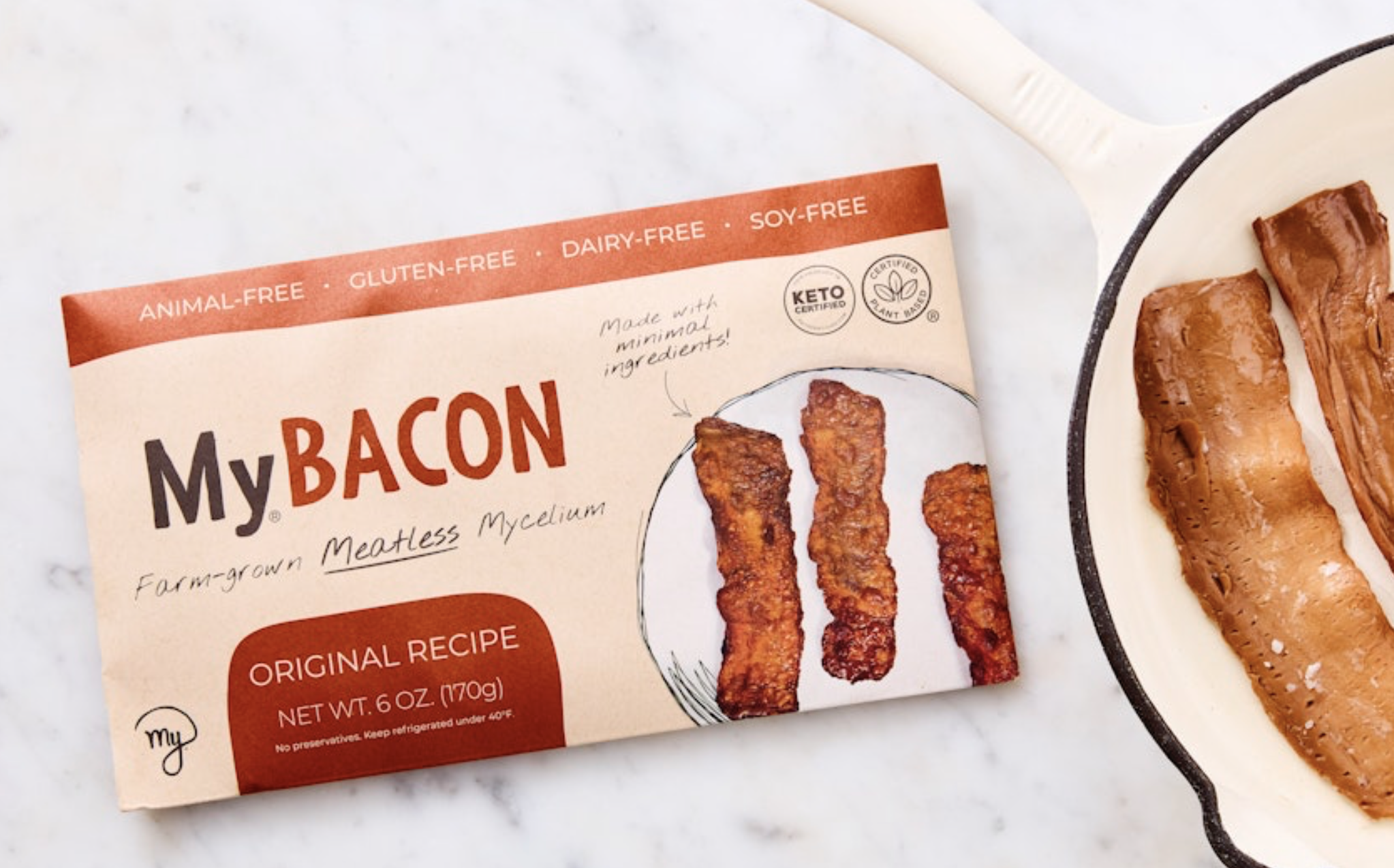
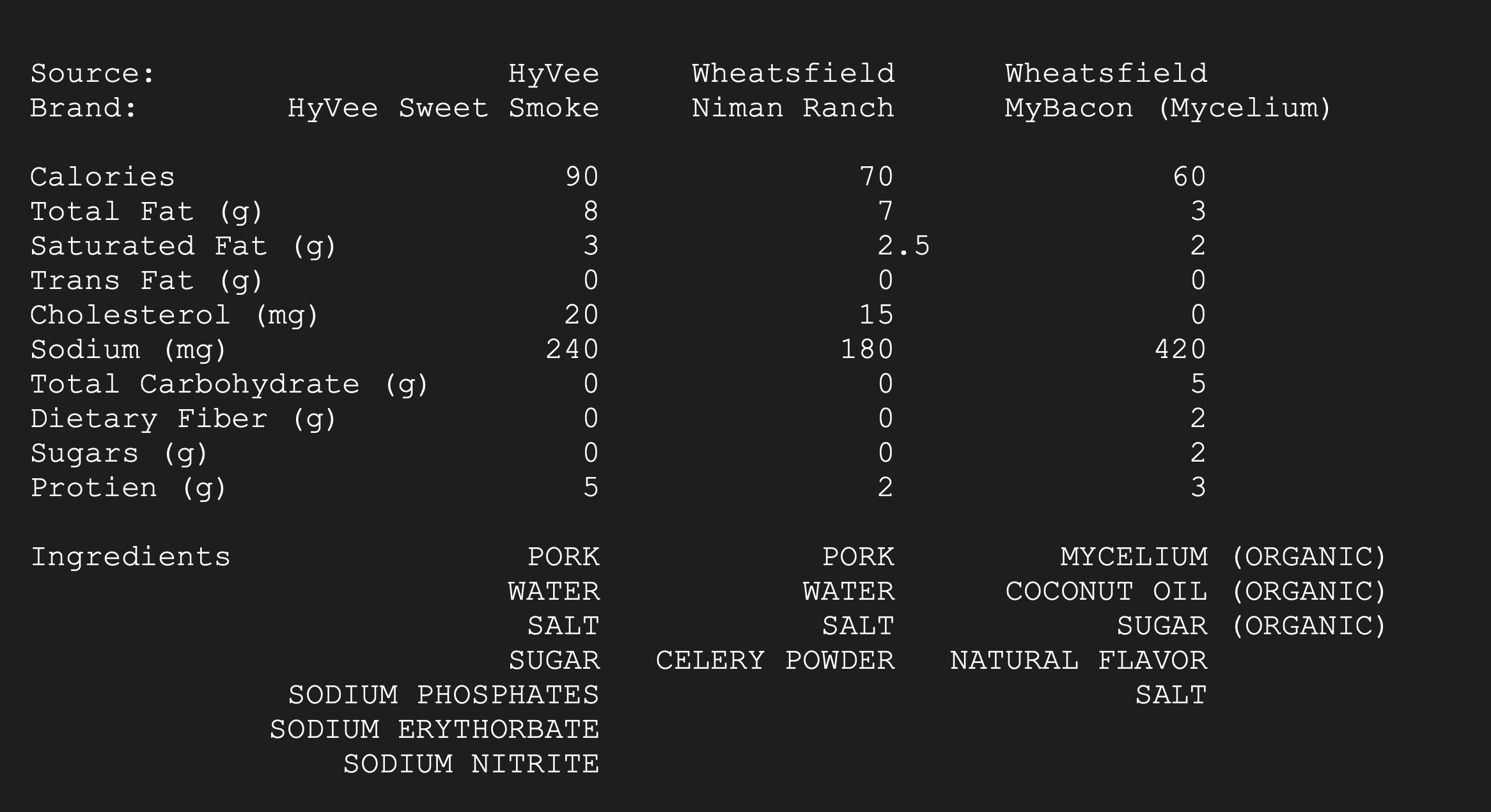 ⓶ MEDITERRANEAN-STYLE DIETS
Mediterranean-style diets may still lower cardiovascular risk
independent of lean beef intake
https://medicalxpress.com/news/2025-09-mediterranean-style-diets-cardiovascular-independent.html
Summary
A study funded by the National Cattlemen's Beef Association
found that a Mediterranean-style diet with lean beef produced
less trimethylamine N-oxide (TMAO) compared to a typical
American diet with the same amount of beef. The
Mediterranean-style diet, which included higher amounts of
healthy fats, fiber, and marine n-3, resulted in lower plasma
and urinary TMAO levels, suggesting the overall diet pattern,
not beef, influenced TMAO differences. While the study was
rigorous, the funding source should be considered when
interpreting the results.
This Popular Diet Seems to Reduce Gum Disease, Scientists Say
https://www.sciencealert.com/this-popular-diet-seems-to-reduce-gum-disease-scientists-say
Those participants who stuck more closely to the plant-rich
Mediterranean diet were less likely to have gum disease, the
data showed – especially those who didn't eat much red meat.
What's more, the healthier diet was also associated with
fewer inflammatory markers in the blood – biological
indicators that the body is under stress or being damaged.
It's another health win for eating in the Mediterranean
style.
Mediterranean Diet (Science and Recipes)
http://edu-observatory.org/olli/Mediterranean/index.html
⓷ NASA's WEBB TELESCOPE
⓶ MEDITERRANEAN-STYLE DIETS
Mediterranean-style diets may still lower cardiovascular risk
independent of lean beef intake
https://medicalxpress.com/news/2025-09-mediterranean-style-diets-cardiovascular-independent.html
Summary
A study funded by the National Cattlemen's Beef Association
found that a Mediterranean-style diet with lean beef produced
less trimethylamine N-oxide (TMAO) compared to a typical
American diet with the same amount of beef. The
Mediterranean-style diet, which included higher amounts of
healthy fats, fiber, and marine n-3, resulted in lower plasma
and urinary TMAO levels, suggesting the overall diet pattern,
not beef, influenced TMAO differences. While the study was
rigorous, the funding source should be considered when
interpreting the results.
This Popular Diet Seems to Reduce Gum Disease, Scientists Say
https://www.sciencealert.com/this-popular-diet-seems-to-reduce-gum-disease-scientists-say
Those participants who stuck more closely to the plant-rich
Mediterranean diet were less likely to have gum disease, the
data showed – especially those who didn't eat much red meat.
What's more, the healthier diet was also associated with
fewer inflammatory markers in the blood – biological
indicators that the body is under stress or being damaged.
It's another health win for eating in the Mediterranean
style.
Mediterranean Diet (Science and Recipes)
http://edu-observatory.org/olli/Mediterranean/index.html
⓷ NASA's WEBB TELESCOPE
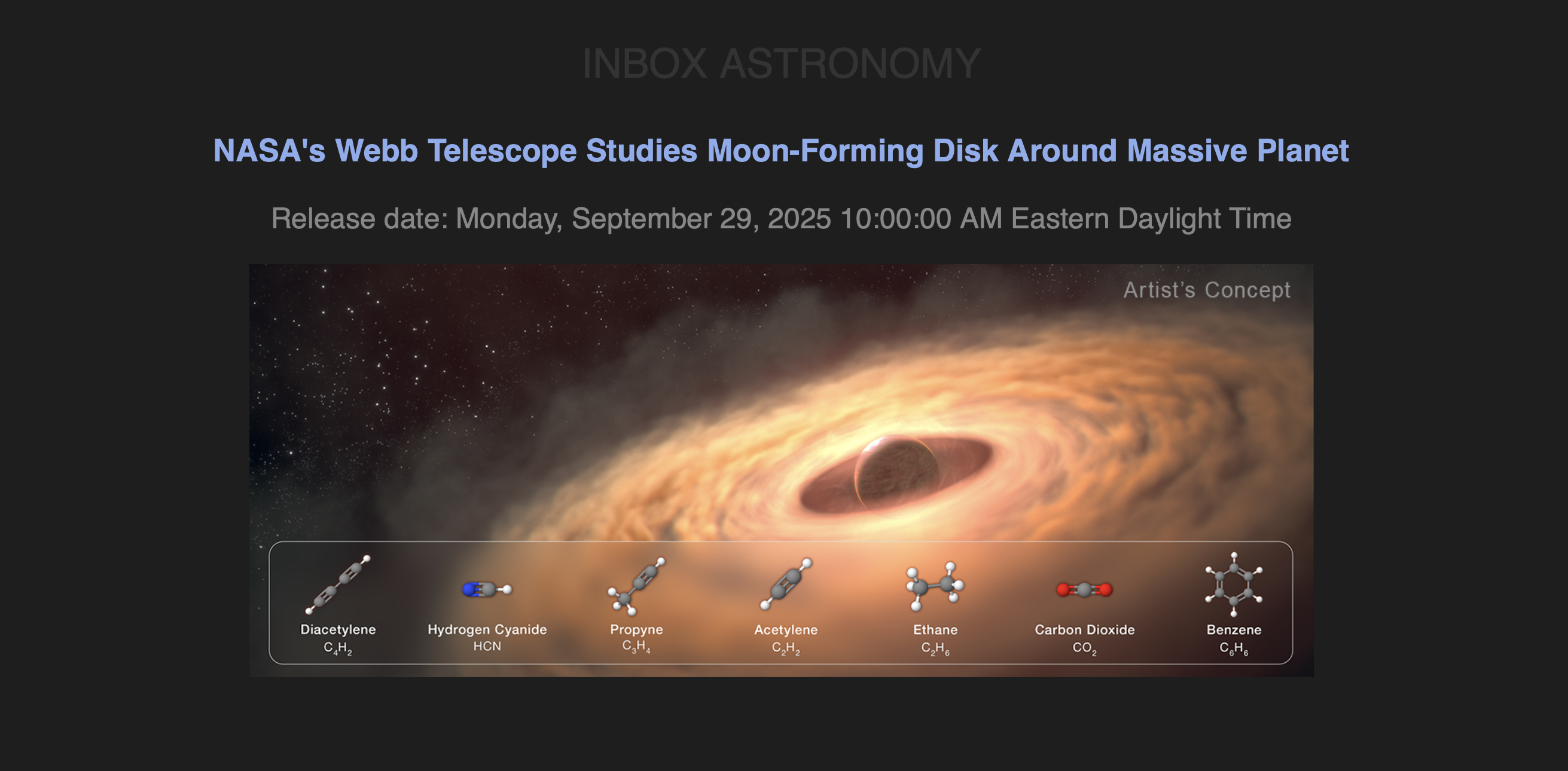
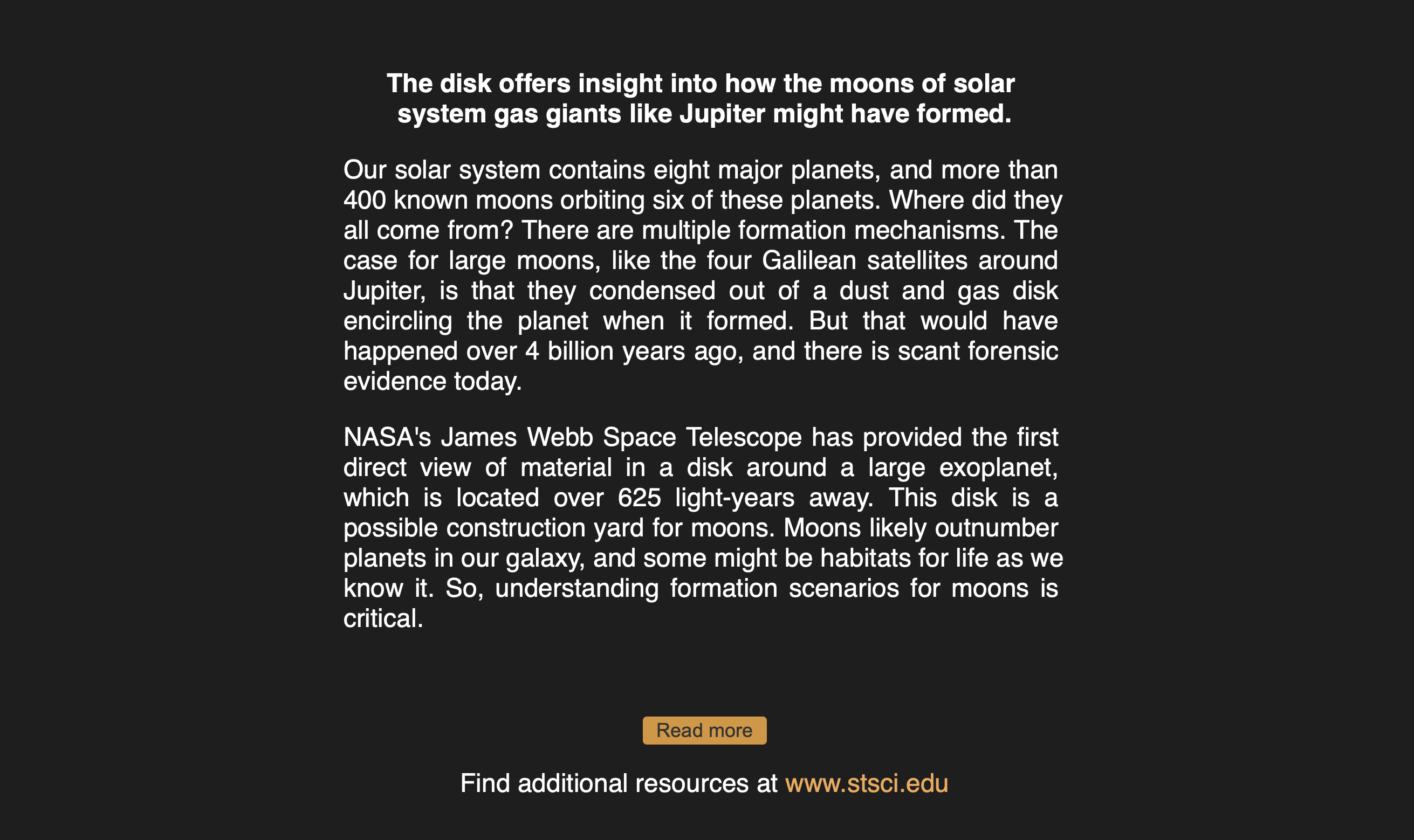 How Does Life Come From Randomness?
http://edu-observatory.org/olli/42/Week3.html
How Did Life Begin on Earth?
http://edu-observatory.org/olli/42/Week4.html
⓸ THE FUTURE OF UNIVERSITIES
The Future Of Universities: A Nature Special Report
https://www.nature.com/immersive/d41586-025-03086-5/index.html
https://www.nature.com/articles/d41586-025-03065-w
Universities worldwide are up against it like never before.
Technological innovations such as artificial intelligence and
the global 'massification' of higher education pose
fundamental questions about what education is for, how it
should be delivered and how it should be funded. Faculty
members are facing ever bigger workloads and intense
competition for funding as research budgets are squeezed.
Tightening visa regulations are undermining global student
and researcher mobility, while academic freedom is coming
under pressure from politicians who see universities as
unrepresentative of all parts of the social and political
spectrum.
Yet, in all this, universities remains a hotbed of innovation
- and a source of huge expertise, knowledge and value for
wider society. This Nature special examines all the pressures
higher education is under - and, drawing on examples from
across the world, asks how the sector can and must adapt to
survive.
⓹ MICROPLASTICS FOUND DEEP INSIDE HUMAN BONES
Microplastics Found Deep Inside Human Bones, Scientists Warn
https://www.sciencealert.com/microplastics-found-deep-inside-human-bones-scientists-warn
How Does Life Come From Randomness?
http://edu-observatory.org/olli/42/Week3.html
How Did Life Begin on Earth?
http://edu-observatory.org/olli/42/Week4.html
⓸ THE FUTURE OF UNIVERSITIES
The Future Of Universities: A Nature Special Report
https://www.nature.com/immersive/d41586-025-03086-5/index.html
https://www.nature.com/articles/d41586-025-03065-w
Universities worldwide are up against it like never before.
Technological innovations such as artificial intelligence and
the global 'massification' of higher education pose
fundamental questions about what education is for, how it
should be delivered and how it should be funded. Faculty
members are facing ever bigger workloads and intense
competition for funding as research budgets are squeezed.
Tightening visa regulations are undermining global student
and researcher mobility, while academic freedom is coming
under pressure from politicians who see universities as
unrepresentative of all parts of the social and political
spectrum.
Yet, in all this, universities remains a hotbed of innovation
- and a source of huge expertise, knowledge and value for
wider society. This Nature special examines all the pressures
higher education is under - and, drawing on examples from
across the world, asks how the sector can and must adapt to
survive.
⓹ MICROPLASTICS FOUND DEEP INSIDE HUMAN BONES
Microplastics Found Deep Inside Human Bones, Scientists Warn
https://www.sciencealert.com/microplastics-found-deep-inside-human-bones-scientists-warn
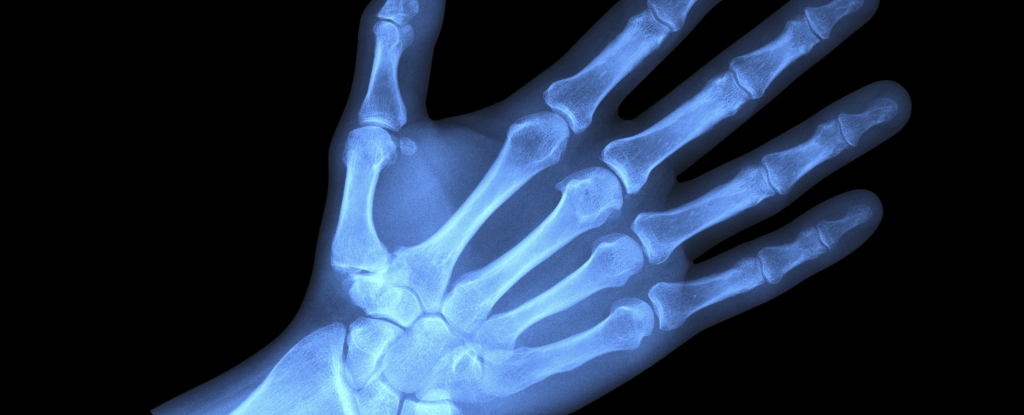 Microplastics are now so ubiquitous we're drinking, eating,
and inhaling them. As a result, they're showing up in our
poop, placentas, reproductive organs, and brains.
Now these fossil-fuel-derived particles, less than 5 mm in
size, have been found deep within our bones.
A new review of 62 studies suggests microplastics and smaller
nanoplastics are impacting our skeletal health in multiple
ways.
Related Material from some recent OLLI cources
http://edu-observatory.org/olli/classes.html#CURRENT
Alan Lightman On Richard Feynman's Amazing Mind, Or How
"Hawking Radiation" Could Well Be "Feynman Radiation" (6+ min)
https://player.vimeo.com/video/104516539
sam.wormley@icloud.com
Microplastics are now so ubiquitous we're drinking, eating,
and inhaling them. As a result, they're showing up in our
poop, placentas, reproductive organs, and brains.
Now these fossil-fuel-derived particles, less than 5 mm in
size, have been found deep within our bones.
A new review of 62 studies suggests microplastics and smaller
nanoplastics are impacting our skeletal health in multiple
ways.
Related Material from some recent OLLI cources
http://edu-observatory.org/olli/classes.html#CURRENT
Alan Lightman On Richard Feynman's Amazing Mind, Or How
"Hawking Radiation" Could Well Be "Feynman Radiation" (6+ min)
https://player.vimeo.com/video/104516539
sam.wormley@icloud.com
Summary Researchers at the Fraunhofer Institute for Applied Polymer Research are using mycelium, the thread-like cells of fungi, to develop sustainable, biodegradable materials. By combining mycelium with agricultural residues, they create a versatile composite that can be molded into various forms and used for applications like packaging, insulation, and leather alternatives. A new roll-to-roll production method ensures consistent product quality and enables industrial-scale production. Why Mushrooms are Starting to Replace Everything https://www.youtube.com/watch?v=jI2LC3WTryw (14 min) Why Mushrooms are Starting to Replace Everything. Imagine a world where the homes we live in, the clothes we wear, and even the sensors in our electronics weren’t manufactured, but grown. Mycelium, the root structure of fungi, is shaking up everything from sustainable construction to meatless bacon. It’s turning agricultural waste into walls, hemp into compostable packaging, and fungal threads into leather that even luxury brands are eyeing. This mushroom material is set to insulate the façade of a 300-unit housing project in California. And now, innovators are swapping out the sensors of robots for the electrical pulses of living mycelium. So, how long until mycelium is just as ubiquitous as wood, metal, and plastic? Seven Health Benefits of Mycelium: Boost Immunity and Gut Health Naturally https://seniorfitness.org/health-benefits-of-mycelium/
Summary Mycelium, the root-like structure of fungi, offers numerous health benefits. It reduces cancer risk, lowers sodium intake, promotes healthier cholesterol levels, and protects brain health. Additionally, mycelium provides a natural source of vitamin D, enhances gut health, and strengthens the immune system.

⓶ MEDITERRANEAN-STYLE DIETS Mediterranean-style diets may still lower cardiovascular risk independent of lean beef intake https://medicalxpress.com/news/2025-09-mediterranean-style-diets-cardiovascular-independent.html Summary A study funded by the National Cattlemen's Beef Association found that a Mediterranean-style diet with lean beef produced less trimethylamine N-oxide (TMAO) compared to a typical American diet with the same amount of beef. The Mediterranean-style diet, which included higher amounts of healthy fats, fiber, and marine n-3, resulted in lower plasma and urinary TMAO levels, suggesting the overall diet pattern, not beef, influenced TMAO differences. While the study was rigorous, the funding source should be considered when interpreting the results. This Popular Diet Seems to Reduce Gum Disease, Scientists Say https://www.sciencealert.com/this-popular-diet-seems-to-reduce-gum-disease-scientists-say Those participants who stuck more closely to the plant-rich Mediterranean diet were less likely to have gum disease, the data showed – especially those who didn't eat much red meat. What's more, the healthier diet was also associated with fewer inflammatory markers in the blood – biological indicators that the body is under stress or being damaged. It's another health win for eating in the Mediterranean style. Mediterranean Diet (Science and Recipes) http://edu-observatory.org/olli/Mediterranean/index.html ⓷ NASA's WEBB TELESCOPE

How Does Life Come From Randomness? http://edu-observatory.org/olli/42/Week3.html How Did Life Begin on Earth? http://edu-observatory.org/olli/42/Week4.html ⓸ THE FUTURE OF UNIVERSITIES The Future Of Universities: A Nature Special Report https://www.nature.com/immersive/d41586-025-03086-5/index.html https://www.nature.com/articles/d41586-025-03065-w Universities worldwide are up against it like never before. Technological innovations such as artificial intelligence and the global 'massification' of higher education pose fundamental questions about what education is for, how it should be delivered and how it should be funded. Faculty members are facing ever bigger workloads and intense competition for funding as research budgets are squeezed. Tightening visa regulations are undermining global student and researcher mobility, while academic freedom is coming under pressure from politicians who see universities as unrepresentative of all parts of the social and political spectrum. Yet, in all this, universities remains a hotbed of innovation - and a source of huge expertise, knowledge and value for wider society. This Nature special examines all the pressures higher education is under - and, drawing on examples from across the world, asks how the sector can and must adapt to survive. ⓹ MICROPLASTICS FOUND DEEP INSIDE HUMAN BONES Microplastics Found Deep Inside Human Bones, Scientists Warn https://www.sciencealert.com/microplastics-found-deep-inside-human-bones-scientists-warn
Microplastics are now so ubiquitous we're drinking, eating, and inhaling them. As a result, they're showing up in our poop, placentas, reproductive organs, and brains. Now these fossil-fuel-derived particles, less than 5 mm in size, have been found deep within our bones. A new review of 62 studies suggests microplastics and smaller nanoplastics are impacting our skeletal health in multiple ways. Related Material from some recent OLLI cources http://edu-observatory.org/olli/classes.html#CURRENT Alan Lightman On Richard Feynman's Amazing Mind, Or How "Hawking Radiation" Could Well Be "Feynman Radiation" (6+ min) https://player.vimeo.com/video/104516539 sam.wormley@icloud.com